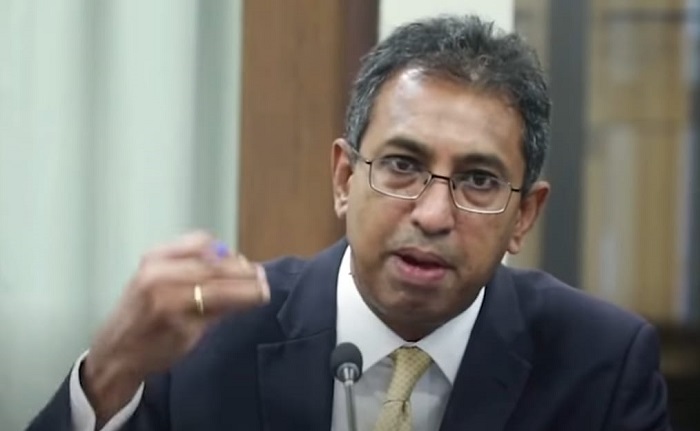
Opposition MP Dr. Harsha de Silva has raised concerns over the recently presented Appropriation Bill for the fiscal year 2024, claiming that the proposed economic policies fall short, contradicting optimistic claims by the government.
Stating that he had critically examined the Budget 2024, MP de Silva shed light in Parliament yesterday on crucial issues demanding immediate attention, warning that implementation remains a major concern.
The following are 15 key points raised on the Budget 2024 by MP Harsha de Silva;
- The proposed economic policies fall short, contradicting optimistic claims by the government. Implementation remains a major concern.
- Budget 2024 violates the Fiscal Management Responsibility Act, with a deficit exceeding 5%. Reports from LirneAsia, World Bank, and UNDP reveal a surge in poverty with over 4mn pushed into poverty in the last two years. Urgent action is needed.
- Recent Supreme Court verdict on Economic Crimes identifies key figures responsible for the economic downturn. A parliamentary discussion on revoking the civic rights of those found guilty is crucial.
- Despite claims of stabilized inflation, the cost of living for a family of four surged by 91% in the last two years, according to former deputy CB gov W.A. Wijewardena. It’s essential to address the widening gap between claims and reality.
- The current government lacks a comprehensive plan to achieve its ambitious economic goals by 2048, where we need to grow by at least 6.4 % annually from 2027. At 3% growth, we’ll only get there by 2068.
- Robust measures are needed to combat corruption in Sri Lanka across sectors. The absence of anti-corruption initiatives raises concerns. Implementation of the STAR program and an independent prosecutor’s office as outlined in Samagi Jana Balawegaya’s Blue Print is crucial.
- Beyond corruption, creating economic opportunities for youth, empowering entrepreneurs, and supporting small/medium businesses across the island are vital. Fairness and efficient resource utilization must be prioritized.
- Fiscal consolidation and expenditure reduction complexities must consider social equity. Allocation to vital sectors like health and education is fair but directing funds to loss-making SOEs such as SLA’s recent requirement to cover liabilities of 110Bn, while Govt expects 100bn from Pay As You Earn (PAYE).
- Commendable efforts to broaden the tax net with TIN being required for public services, but a broader conversation on Sri Lanka’s economic trajectory is needed. Moving beyond stability to sustainable growth is imperative.
- Concerns over the staggering debt-to-GDP ratio of 104% and substantial interest payments, being one of the highest in the world, need urgent attention. Moving beyond stability to growth is crucial and the International Monetary Fund (IMF) expectations must be considered.
- Transparency in dealing with the Exim Bank of China, the Paris Club agreement, and addressing NPLs in state banks is crucial. Recapitalization and privatization of certain State banks are steps toward stability.
- Addressing challenges in future debt issuance, increasing forex reserves, and transitioning to a growth-oriented production economy are essential.
- A mindset shift is needed for higher growth rates. Deregulation, reducing red tape, and encouraging investments for capital formation are crucial. An open-minded approach to trade agreements fosters economic growth.
- Creative solutions like wind farms in Mannar and connectivity with India’s grid can generate valuable forex. Proactive thinking is needed for innovative projects.
- My comprehensive address highlights challenges in Sri Lanka’s economic landscape and proposes strategic reforms for equitable growth. Transparency, accountability, and a visionary approach are crucial for a new economic trajectory. (NewsWire)
